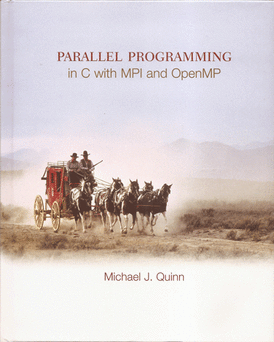The world of technology is moving at a breakneck pace. We are surrounded by information, constantly bombarded with news, opinions, and data. While this access can be empowering, it also presents us with new ethical challenges. It’s in this digital landscape that the book “Ethics for the Information Age” by Michael Quinn provides a critical roadmap for navigating the complex moral issues we face. This book, now in its 7th edition, delves into the ethical implications of information technology, guiding us towards a more responsible and thoughtful approach to the digital world.

Image: fulsancbounco.weebly.com
In this age of digital transformation, it’s become increasingly difficult to separate fact from fiction, truth from misinformation. Our online interactions, data privacy, and even our personal identities are constantly at stake. “Ethics for the Information Age” serves as a crucial resource for understanding these challenges, empowering us to make informed decisions in our personal and professional lives.
Exploring the Uncharted Territory of Ethics in the Information Age
A Foundation for Ethical Decision-Making
“Ethics for the Information Age” delves into the very core of ethical decision-making in the realm of information technology. The book examines the fundamental principles of ethics, such as responsibility, accountability, and respect, while also addressing the unique ethical challenges that arise from the advancements in technology. It offers a comprehensive framework for analyzing ethical dilemmas, encouraging readers to consider the potential consequences of their actions in the digital sphere.
Understanding the Ethical Landscape of the Information Age
The book explores a wide range of ethical issues related to information technology, providing insightful discussions on topics like:
- Privacy and Security: Exploring the challenges of protecting personal data in the age of big data and surveillance.
- Intellectual Property: Discussing the ethics of copyright, fair use, and the sharing of digital content.
- Artificial Intelligence and Robotics: Examining the ethical challenges posed by emerging technologies like facial recognition, autonomous vehicles, and AI-powered decision-making.
- Social Media and Online Communities: Analyzing the ethical implications of social media platforms, misinformation, and cyberbullying.
- Cybercrime and Cybersecurity: Discussing the ethics of hacking, malware, and the responsibility of individuals and organizations to protect themselves and others from cyber threats.

Image: questionbank.store
Navigating the Ethical Dilemmas of Information Technology
“Ethics for the Information Age” provides a framework for analyzing ethical dilemmas, encouraging individuals to consider the potential consequences of their actions in the digital sphere. It presents ethical principles, various philosophical perspectives, and case studies that illustrate the complex ethical challenges we face in the digital age. The book encourages a thoughtful approach to technology, challenging readers to consider not only the immediate benefits but also the potential long-term impacts of their choices.
Understanding the Ethical Dimension of the Internet
The book also delves into the ethical aspects of the Internet, addressing topics such as:
- Internet Censorship: Exploring the ethical implications of government control and regulation of online content.
- Net Neutrality: Discussing the ethics of ensuring equal access to online content and services.
- Digital Divide: Examining the ethical challenges of bridging the gap between those with access to technology and those without.
The Power of Informed Decisions in the Digital Age
“Ethics for the Information Age” emphasizes the importance of making informed decisions in the digital age. It encourages individuals to be critical consumers of information, to be aware of their digital footprint, and to use technology responsibly. The book provides a powerful framework for developing ethical awareness and promoting responsible technology usage.
Navigating Ethical Challenges in the Digital Age: Expert Insights and Practical Tips
Develop Ethical Awareness in the Digital Age
The key to navigating the ethical challenges of the information age is developing ethical awareness. This involves understanding the potential consequences of your actions in the digital sphere, considering the impact of your choices on others, and being mindful of the ethical frameworks that govern your behavior. By fostering this awareness, you can make more ethical decisions and contribute to a more responsible digital environment.
Embrace Ethical Principles and Frameworks
The book provides a solid background on ethical principles and frameworks that can help guide your decisions in the digital age. These frameworks, based on principles like utilitarianism, deontology, and virtue ethics, offer valuable perspectives for analyzing ethical dilemmas and making informed choices. By understanding these principles, you can develop a stronger ethical compass and navigate the evolving landscape of digital ethics.
Frequently Asked Questions – Unraveling the Mysteries of “Ethics for the Information Age”
Q: Is “Ethics for the Information Age” relevant for everyone?
A: Absolutely! This book isn’t just for tech professionals or academics; it’s relevant for anyone who uses technology. Whether you use social media, shop online, or simply access information on the internet, you’re engaging with ethical considerations addressed in this book. It’s a valuable resource for understanding the ethical implications of your digital life.
Q: What’s the best way to use “Ethics for the Information Age”?
A: You can use it for learning, reflection, and practical application. Read the chapters that resonate with you, engage with the real-world examples, and reflect on how these principles apply to your personal and professional life. The book can act as a valuable conversation starter, prompting you to think critically about the ethical dimensions of technology.
Q: Where can I find the 7th Edition of “Ethics for the Information Age” in PDF format?
A: While we encourage you to support the author and publisher by purchasing the book in its official format, you can find the 7th Edition PDF online through reputable academic platforms and libraries. Please remember to verify the source and ensure the PDF is from a reliable and trusted provider.
Ethics For The Information Age 7th Edition Pdf
The Importance of Ethical Technology
In an age where technology is rapidly transforming our lives, “Ethics for the Information Age” is not just a book, it’s a guidebook for responsible navigation in the digital world. Its insights help us understand the ethical challenges, equip us to make informed decisions, and ultimately, shape a more equitable and ethical future for all.
Are you interested in learning more about ethics in the information age? Share your thoughts and questions in the comments below!





